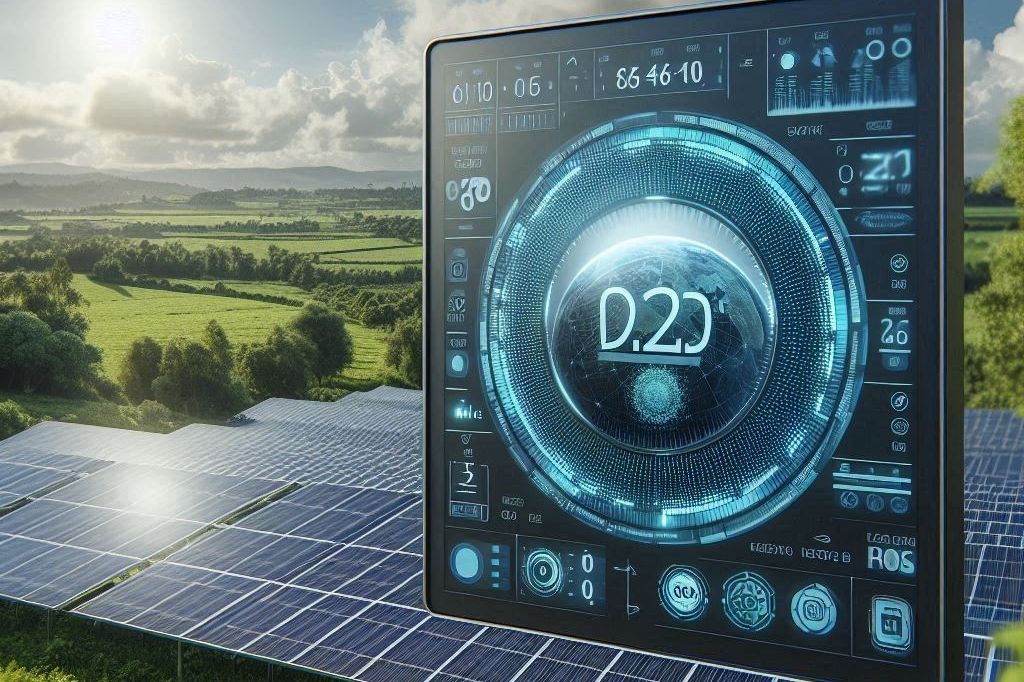One of the most important components of solar energy systems is undoubtedly inverters, which contain the answer to the question What Does an Inverter Do in a Solar Panel System. Solar energy panels are equipped with devices called inverters to not only generate electricity directly, but also to make this electricity available. So, what exactly does an inverter do and why is it so important? Here we will dig a little deeper to find the answers to these questions.
Conversion of Solar Energy
Solar panels are devices that convert sunlight directly into electrical energy. This energy is generated as direct current (DC), and the main task of the inverter is to convert this direct current into alternating current (AC). Alternating current is the type of electricity used in our homes and workplaces. Therefore, the energy produced by solar panels becomes available thanks to inverters.
This conversion process of inverters is a very critical process. Because direct current is usually low voltage and difficult to transport over long distances. Alternating current, on the other hand, has a high voltage and is easier to transport over long distances. Therefore, inverters are indispensable for the efficient operation of solar energy systems.
In addition, inverters not only convert electricity, but also provide additional October functions such as energy management and system monitoring. These functions are very important for optimizing the system’s performance and detecting possible problems.
System Monitoring and Management
Inverters play an important role for the efficient operation of solar energy systems. These devices monitor and manage energy production. Inverters constantly monitor the electrical current coming from the solar panels and control the quality of this current. In this way, energy production is optimized and system performance is maximized.

System monitoring and management is one of the most important functions of inverters. Inverters collect and analyze energy production data. This data shows how efficient energy production is and helps to identify possible problems. In addition, thanks to these data, the performance of solar energy systems is constantly monitored and intervened when necessary.
In addition, inverters ensure the security of energy production systems. These devices detect situations such as overload or short circuit and protect the system. Thanks to this, solar energy systems operate safely and there are no interruptions in energy production.
Efficiency and Performance
The role of inverters in solar energy systems is also very important in terms of efficiency and performance. Inverters minimize energy loss during the process of converting direct current to alternating current and thus increase the overall efficiency of the system. This allows energy production to be more sustainable and economical.
Efficiency is not limited to minimizing energy loss. Inverters also optimize the overall performance of the system. For example, modern inverters are designed to maximize energy production even in situations such as ghosting or panel failures. Thanks to this, solar energy systems operate with high efficiency in all conditions.
In addition, inverters can work integrated with energy storage systems. This ensures that solar energy can be used even at night or on cloudy days. Inverters also manage the energy from energy storage systems, ensuring an uninterrupted energy supply and reducing energy costs.
Future Expectations
Inverter technologies continue to develop continuously. In the future, it is expected that inverters will become even more efficient and intelligent. In particular, the use of technologies such as artificial intelligence and the Internet of things (IoT) will make inverters even more capable of energy management and system monitoring.
Among the future prospects is the more integrated operation of inverters with energy storage systems. Dec. This will make solar energy systems more sustainable and economical. In addition, this integration will increase the security of energy supply and reduce energy costs.
The future development of solar energy systems will largely depend on the advancement of inverter technologies. Therefore, the development and more widespread use of inverters is of great importance for the growth of the solar energy sector.
Inverters can be considered as the heart of solar energy systems. These devices perform critical functions such as energy conversion, system monitoring and management, and ensure the efficient operation of solar energy systems. In the future, the further development and dissemination of inverter technologies is of great importance for the sustainability of the solar energy sector.